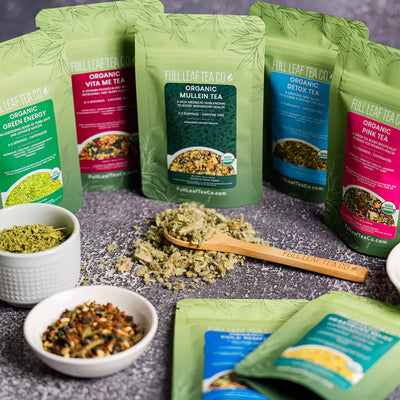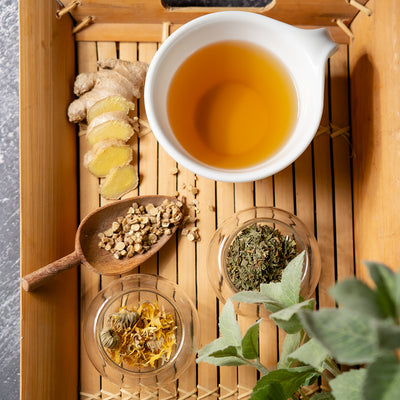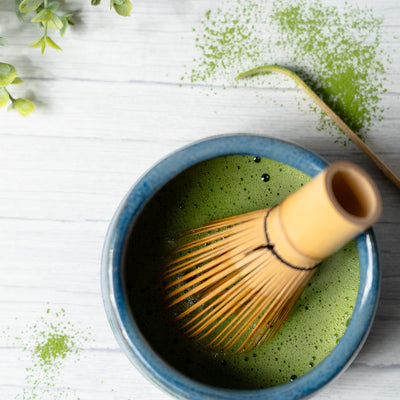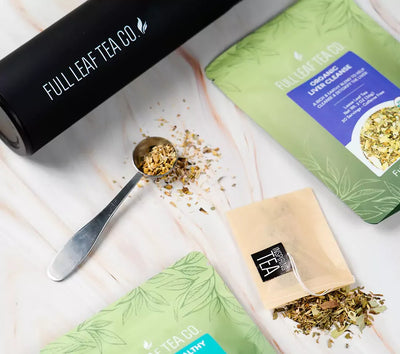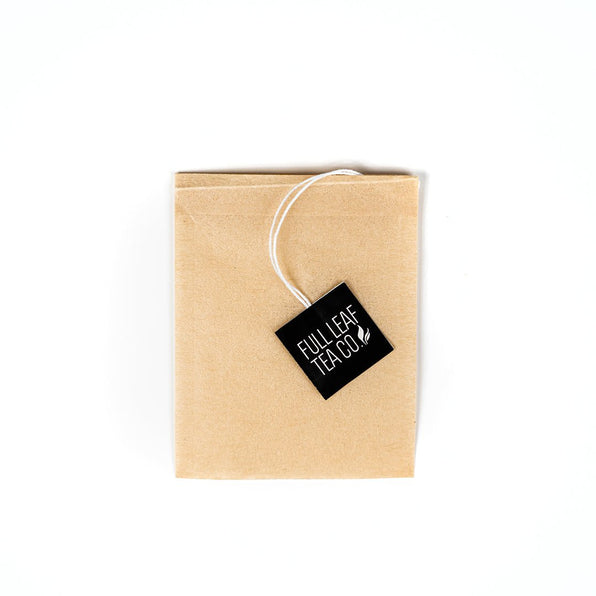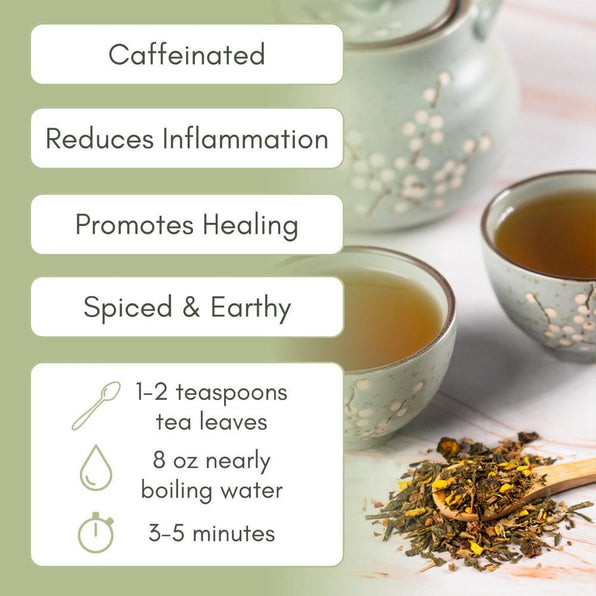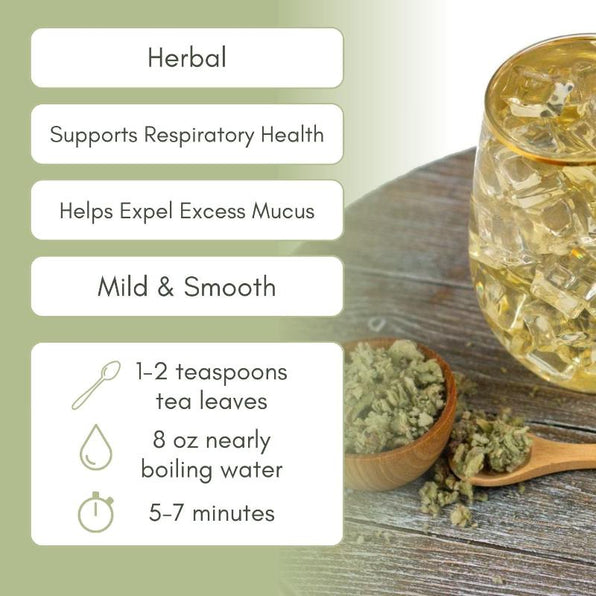Lemon Myrtle - The Queen of Lemon Herbs: Benefits, Uses, and Fascinating History

What is Lemon Myrtle?
Lemon myrtle (Backhousia citriodora) is a native Australian plant celebrated for its bright green leaves and intensely fresh citrus aroma. Its distinctive fragrance comes from citral , a natural compound that gives it a vibrant lemon-lime scent with hints of lemongrass. When enjoyed as tea, the quality of the leaf makes all the difference.
Why Loose Leaf Tea?
Loose leaf lemon myrtle preserves more of these delicate aromatic oils than bagged tea, which often contains broken leaf particles that lose their essential oils more quickly. By keeping the leaves whole, loose leaf allows the natural flavors and healthful compounds to remain intact, delivering a fuller aroma, richer taste, and more potent benefits in every cup.
History
For thousands of years, Indigenous Australians have valued lemon myrtle for both its flavor and its medicinal properties, using the fragrant leaves in cooking, remedies, and cultural practices. Its first major commercial appearance came during the Second World War, when lemon shortages led to its use as a lemon substitute in a popular brand of lemonade. However, overharvesting in the years that followed caused supplies to dwindle, and it was gradually replaced by other citrus-scented plants like lemongrass. In the 1990s, lemon myrtle experienced a revival as a cultivated crop, with dedicated orchards ensuring a sustainable supply. Its renewed popularity even saw it featured on menus in the Athletes’ Village during the Sydney 2000 Olympic Games. Today, sustainably grown lemon myrtle is harvested at peak freshness to preserve its signature aroma and beneficial compounds — the same qualities that make loose leaf tea such an aromatic, flavorful way to enjoy this remarkable native herb.
With an exceptionally fresh, tangy scent and a bright, zesty flavor, this unique herb is perfect for those seeking a refreshing and uplifting experience.
Health Benefits of Lemon Myrtle
Antioxidant Powerhouse
- More polyphenols than many other herbal teas.
- Similar antioxidant profile to black tea — but naturally caffeine-free.
Anti-inflammatory Properties
- Supports reduced inflammation and overall wellness.
Metabolic Health Benefits
- May support healthy metabolism and digestion
Loose Leaf Organic Lemon Myrtle Tea
Organic Lemon Myrtle tea is available in a sample size, 1oz which is around 5 servings or a 4oz bulk bag which is around 60 servings.
Brewing Instructions
1 tsp of tea leaves
8oz of almost boiling water
Steep for 5-7 minutes
Enjoy hot or iced
Lemon Myrtle Tea- Caffeine Free Alternative to Green or Black Tea
Perfect for those avoiding caffeine.
Enjoy any time of day without disrupting sleep.
Naturally caffeine-free and soothing, perfect for evening tea.
Lemon Myrtle is similar to green and black tea due to its antioxidant properties. If you are looking for those benefits, minus the caffeine then lemon myrtle would be the perfect alternative and great to drink anytime of day.

Other Uses:
Lemon myrtle can be used in many different ways beyond being steeped at tea. Although, we think tea is the best way to enjoy lemon myrtle, you can get creative in how you use it in foods, drinks or around your household.
Culinary : teas, spice blends, desserts, savory dishes.
Wellness : herbal infusions, stress relief, immune support.
Home & Beauty : soaps, lotions, natural cleaning products.
Scent and Flavor Profile
Organic Lemon Myrtle has a strong lemon flavor and scent.

A uniquely Australian superherb – Lemon myrtle is prized for its vibrant lemon-lime aroma, rich antioxidant profile, and naturally caffeine-free qualities.
Packed with benefits – Known for its antioxidant, anti-inflammatory, and metabolic health properties, it’s a flavorful way to support wellness.
Best enjoyed loose leaf – Whole leaves preserve more aromatic oils and nutrients, delivering a fuller flavor and aroma than bagged tea.
FAQs
What does lemon myrtle taste like?
Lemon myrtle has a vibrant, refreshing flavor that blends the brightness of lemon with subtle lime and lemongrass notes. It’s naturally smooth, without the tart acidity of citrus fruits.
How do I brew loose leaf lemon myrtle tea?
1 tsp of tea leaves
8oz of almost boiling water
steep for 5-7 minutes
Besides tea, how else can I use lemon myrtle?
Lemon myrtle leaves can be used in baking, marinades, spice blends, and even homemade beauty products like soaps and lotions.
How should I store loose leaf lemon myrtle tea?
Keep it in a container or sealed in the product bag, away from heat, and moisture to preserve its oils and flavor. Properly stored, it will stay fresh and aromatic for many months.

